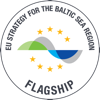This session explored new ways to use marine raw materials, such as mussels, in animal feed. The session was chaired by Stefan Meyer, coordinator of the Competence Network Aquaculture Schleswig-Holstein (KNAQ).
Andreas Stein, sales director at Euroduna, a global player in the specialist feed market, gave an overview on current global markets for marine protein sources in feed, examining the needs of the market and the expected changes in the next 10–20 years. He stated that fish today is still the lead protein, accounting for approx. 50 % of the total global protein market, with Peru, Chile, Norway and Denmark being the biggest producers. Current projections say that 70 % more protein will be needed by 2050. Consequently, there is a strong need to find alternative protein sources for animal feed in times of a growing world population – and with a view to the growth of the aquaculture sector.
Per Dolmer, senior advisor at Orbicon, presented first experiences from Denmark in bringing mussels into the fish feed market as a new raw material. In 2016, the company Blå Biomasse A/S was founded with the aim of running an industrial mussel cultivation with a yearly production volume of 50,000 tonnes. A key factor in making feed mussel production economically sustainable is the strong partnership that has been established along the value chain, involving mussel farmers, mussel meal and fish feed producers as well as fish producers.

Anders Kiessling, Faculty Professor in Aquaculture at the Swedish University of Agricultural Sciences, presented initial results from the post-harvesting work package of the Baltic Blue Growth project, which is looking into different possibilities to process thin-shelled blue mussels from the Baltic Sea. One of these possibilities is the biological production of mussel meal by using soldier fly larvae degradation. Recent changes in European legislation have enabled the use of this high-quality commodity as a feed stuff for aquaculture.
Anne Mette Bæk Jespersen, managing director of Marine Ingredients Denmark who heads the secretariat of EUFishMeal, brought in the perspective of fish meal and fish oil producers. She stressed that Danish and European fish meal and fish oil producers are forerunners in using fish discards in their production processes and are thus contributing to a full utilisation of resources and to building a blue circular economy. Some of the biggest challenges the industry is facing are related to the animal by-products regulation, which does not allow the to producers to provide for human consumption.
One of the conclusions drawn in this session was that feed is food! Fish meal and fish oil production will still have their place and will continue to do so in the future. But new marine raw materials will be needed as a supplement to satisfy the rapidly growing market. New opportunities were also seen in the growing demand for high-value products for human consumption and in the pet feed market.
Workshop's presentations:
Tags: Aquaculture Europe, bioeconomy, Denmark, mussel farming, Baltic Sea Region, Schleswig-Holstein



